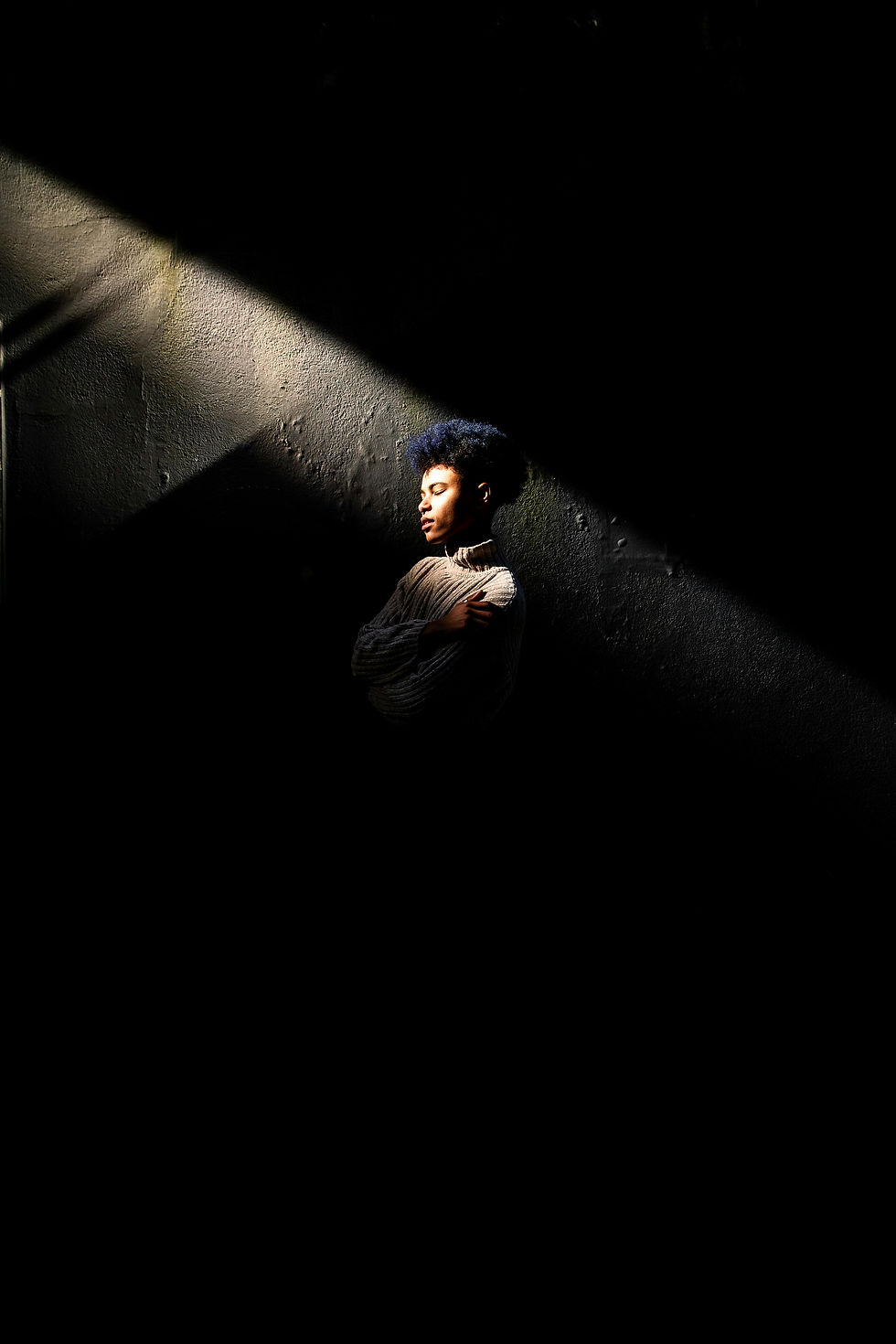Facing Fears: Conquering Phobias in Mental Health Recovery
- Myriam Chatzivasileiou
- Apr 15, 2024
- 3 min read
Phobias, characterized by intense and irrational fears of specific objects, situations, or activities, can significantly impact an individual's quality of life and mental well-being. Whether it's a fear of heights, spiders, social situations, or flying, phobias can cause distress, avoidance behaviors, and feelings of helplessness and isolation. However, with the right support and strategies, individuals can overcome their phobias and reclaim their lives. Let's explore the nature of phobias, their impact on mental health, and effective approaches for conquering them in the journey of mental health recovery.

Understanding Phobias:
Phobias are a type of anxiety disorder characterized by an excessive and persistent fear or anxiety about specific objects or situations. Common types of phobias include:
Specific Phobias: These phobias involve intense fear or anxiety about specific objects or situations, such as heights (acrophobia), spiders (arachnophobia), flying (aviophobia), or enclosed spaces (claustrophobia).
Social Phobia (Social Anxiety Disorder): Social phobia involves a fear of social situations or performance situations in which an individual fears being scrutinized or judged by others. It can manifest as fear of public speaking, meeting new people, or attending social events.
Agoraphobia: Agoraphobia involves a fear of being in situations or places where escape may be difficult or embarrassing, such as crowded spaces, public transportation, or open spaces. Individuals with agoraphobia may avoid leaving their homes altogether.
Impact of Phobias on Mental Health:
Phobias can have a profound impact on mental health and well-being, affecting various aspects of daily life and functioning. Some common effects of phobias include:
Avoidance Behaviors: Individuals with phobias often go to great lengths to avoid situations or objects that trigger their fears, leading to limitations in activities, relationships, and opportunities for personal growth and fulfillment.
Physical Symptoms: Phobias can trigger a range of physical symptoms such as rapid heartbeat, sweating, trembling, dizziness, shortness of breath, and nausea. These physical symptoms can exacerbate feelings of anxiety and distress, further reinforcing avoidance behaviors.
Impaired Quality of Life: Phobias can significantly impair an individual's quality of life, limiting their ability to pursue their goals, engage in meaningful activities, and enjoy fulfilling relationships. Phobias may also lead to feelings of isolation, loneliness, and shame.
Co-Occurring Conditions: Phobias often co-occur with other mental health conditions such as depression, generalized anxiety disorder, and substance abuse disorders, further complicating treatment and recovery.
Conquering Phobias in Mental Health Recovery:
While phobias can feel overwhelming and insurmountable, they are highly treatable with the right support and strategies. Some effective approaches for conquering phobias in mental health recovery include:
Exposure Therapy: Exposure therapy is a evidence-based treatment for phobias that involves gradually exposing individuals to the feared object or situation in a safe and controlled manner. Through repeated exposure and practice, individuals learn to confront their fears and develop coping skills to manage anxiety.
Cognitive-Behavioral Therapy (CBT): CBT is a therapeutic approach that helps individuals identify and challenge negative thoughts and beliefs that contribute to their phobias. By replacing irrational thoughts with more rational and adaptive ones, individuals can change their behavioral responses to feared stimuli.
Relaxation Techniques: Relaxation techniques such as deep breathing, progressive muscle relaxation, and mindfulness meditation can help individuals manage anxiety and physical symptoms associated with phobias. These techniques promote relaxation, reduce stress, and increase feelings of calm and control.
Support Groups: Joining a support group for individuals with phobias can provide validation, encouragement, and practical strategies for coping with fears. Connecting with others who share similar experiences can reduce feelings of isolation and provide a sense of community and belonging.
Medication: In some cases, medication such as selective serotonin reuptake inhibitors (SSRIs) or benzodiazepines may be prescribed to help manage symptoms of anxiety associated with phobias. Medication is often used in conjunction with therapy to support overall treatment goals.
Lifestyle Modifications: Engaging in regular exercise, maintaining a healthy diet, getting adequate sleep, and reducing alcohol and caffeine intake can help support overall mental health and reduce symptoms of anxiety associated with phobias.
In conclusion, overcoming phobias is a journey that requires courage, persistence, and support. By confronting fears, challenging negative beliefs, and developing coping skills, individuals can conquer their phobias and reclaim their lives. With the right treatment and support, individuals can overcome the limitations of phobias and experience greater freedom, confidence, and well-being in their mental health recovery journey.
.png)



Comments